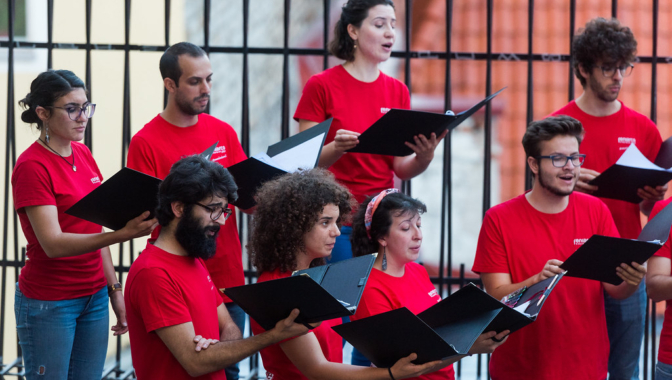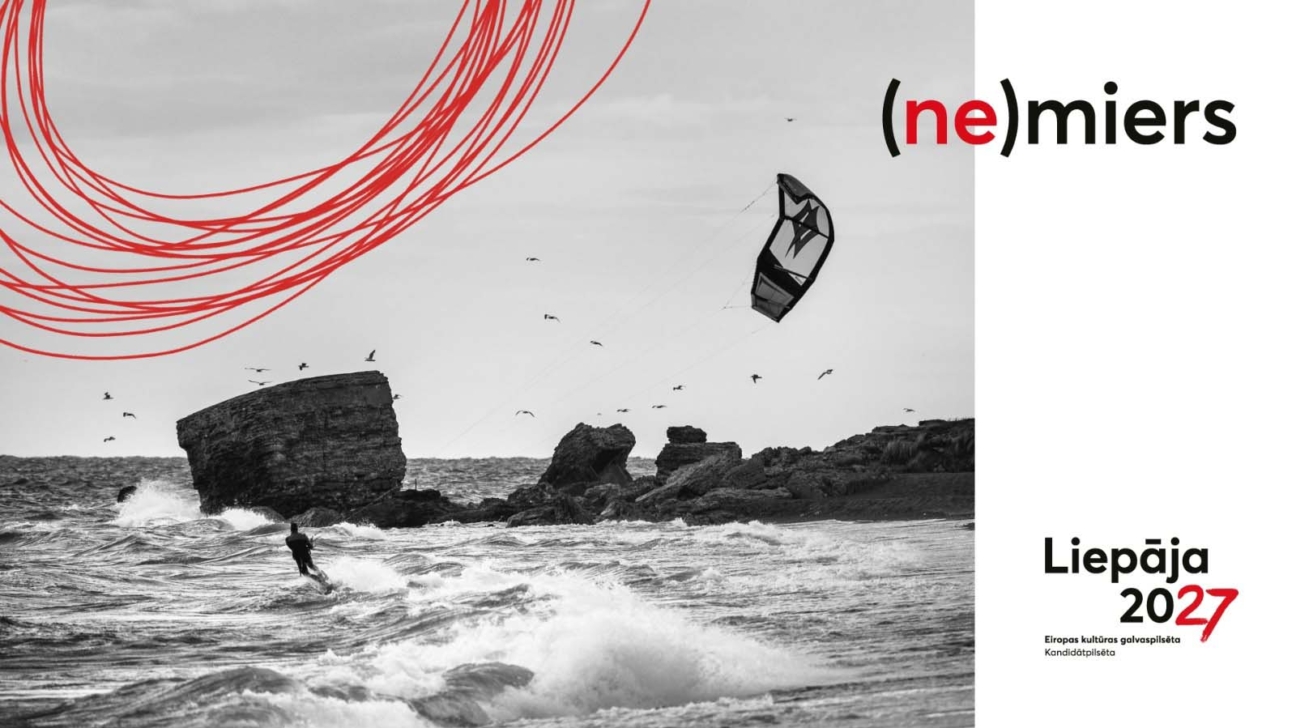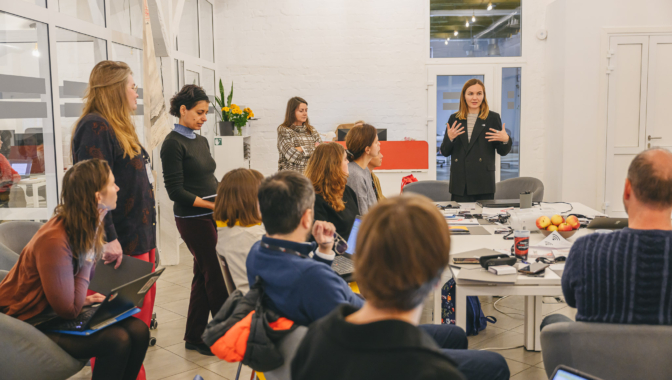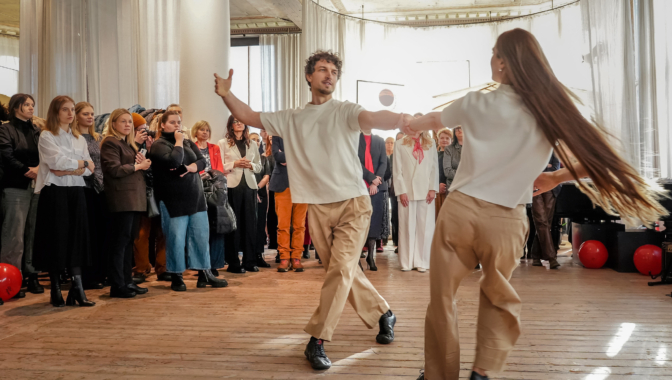On Thursday, May 20, members of the Liepāja City Council approved a decision on support of submitting the Liepāja European Capital of Culture application for the 1st round of the 2027 competition for the European Capital of Culture.
The application includes seven sections which, in response to the 38 questions defined by the European Commission, describe the reasons why Liepāja is taking part in this competition, outline the planned cooperation with neighbouring municipalities, other Latvian and European cities and towns, the public engagement strategy, widely reflect the potential cultural and artistic content, provide calculations, lay out management and marketing plans, etc.
“Over time, being existed under the status of a closed and isolated military area for more than 50 years, Liepāja has been exposed to both the stormy unrest of Liepāja wind and the idle rest of an almost lifeless city. For decades, Liepāja has been the ganglion of (un)rest, a rebel stronghold on the extreme western border of the Soviet Union. Yet freedom is not the only one born in this closed city. The Latvian rock music sprouted here from freedom’ s roots. We are the Las Vegas of Latvia with the slogan ‘What happens in Liepāja, stays in Liepāja’. We are a city with a spirit of independence, almost as a separate republic. Hard tempered and proud. Self-reliant and adamant. Creative and crazy”, – written in the application’s foreword.
Considering the fact that Liepāja is a birth place of the wind, often labelled as the creator of rest and unrest and the feisty force of creativity and overwhelming peace – the concept of Liepāja application is based on the story of (un)rest.
“The encouragement to take part in the competition came out of both rest and unrest. Perhaps the intersection of both these opposites. (Un)rest is an appropriate story that reveals you the very different angles and perspectives and opens up an access to a diverse circle of people. It is a universal concept that allows society as a whole to define what (un)rest for human health and personal growth means. (Un)rest is also in line with the perception of European society, how we imagine life in cities and regions, how we work together by integrating art, technology, the market economy into everyday processes, how we recover from the Covid-19 pandemic and how we build mutual relations,” says Inta Šorina, the project manager of the Liepāja European Capital of Culture 2027 application.
One of the most important challenges that Liepāja wants to address with this participation, is to ignite the involvement of the local community itself in various urban processes. Over the past 10 years, we have learned to coat with asphalt roads, build a modern concert hall, reconstruct the airport and buy new trams, but we have not yet learned how to engage more people in urban development and day-to-day processes.
As written in the application: “Unfortunately, various urban development projects, strategies, funds and plans have not been able to fill this gap between infrastructure building and community involvement. (Un)rest is a story of the locals – “liepājnieki” – and their willingness to cooperate, participate and act.”
A five-line program has been set up under the (un)rest guideline to address important challenges facing both Europe and Liepāja in particular.The shared vision of the program is to provide everyone with landmarks and beacons in the ever-changing world of rest and unrest.
Each of the five lines of the program – “European Dream”, “Port Paradox”, “New Eyes”, “Deliberate modesty” and “Creative foresight” – reveals a story closely linked to Liepāja and its roots to Europe.
The projects have been developed together with representatives of local creative industries from the city and surrounding municipalities, different cultural institutions, independent artists, non-governmental organisations (NGOs), partners in different European and other countries.
With the extensive and versatile cultural program, Liepāja is eager to create a perceptible orientation plan that would help to better understand both each other and the world in which we live, promoting public activity and also growth of a healthy dose of rest and unrest.
“We want to feel keenly ourselves not only as Liepāja and Latvia, but also as an equal and full-fledged part of Europe and the world. To be aware of where of our roots, to understand the times we live in, and to anticipate change by becoming a competent guide and an important networking point in Europe. Our artistic program will hunt for questions, and encourage talks, bringing closer both next door neighbours and strangers from far away.
“The program is designed to be thrilling and captivating for everyone,” says Baiba Bartkeviča, the artistic director of the “European Capital of Culture 2027” Liepāja project.
We look forward to a wide variety genre cross-sectoral projects, vibrant international festivals, as well as events with an extensive and diverse involvement of local Liepāja and county community. There will be an opera music at the seaside, rumbling rock music across the city’s cultural space, The Offbeat Marine Festival in Liepāja and the region, experience and exchanges programs between generations and artists, intense discussion cycles on focal topics, address to the environment issues, etc.
The deadline for the submission of an application for the 1st round of the 2027 competition for the European Capital of Culture is June 4, 2021. The pre-selection results are scheduled to be announced in summer 2021, followed by the announcement of cities, nominated for the 2nd round.
The winner of the European Capital of Culture 2027 title will be announced in 2022.
The main goals of Liepāja for the European Capital of Culture 2027 program are to promote economic growth in the city of Liepāja and awareness among local and international audiences; encourage the education and participation of Liepāja residents in processes important to public, as well as communication between professionals from different sectors, by producing creative process and involving in various cultural activities; ensuring high-quality culture, arts and cross-sectoral activities; developing culture and recreation infrastructure; and promoting the preservation and development of sites and cultural and historical heritage.
The Bid book is available here



